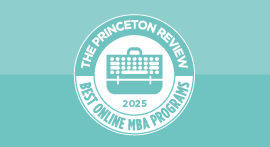Courses in Sustainability
Yes
Sustainability course is
Recommended
Description
Fall 2008 marked the launch of the brand new MBA curriculum at the Desautels Faculty of Management. The re-designed curriculum focuses on maximizing student preparation for future careers through a streamlined, modular Core and an updated selection of concentrations.
Emphasizing the significant research and teaching strengths of McGill's international faculty while responding to current business, social and environmental imperatives, the curriculum offers an integrated multi-disciplinary, problem-solving approach grounded in practice that allow students to work across managerial boundaries and to fully understand how managers and their enterprises function in an international context. Central to our new curriculum is addressing social, environmental and ethical issues through this integrated approach. In all areas, advanced management concepts are integrated with case studies and examples to ground theory in the real world.
Within our basic academic framework, students find diverse opportunities to explore sustainability subjects and apply their learning to real life situations. They are given the opportunity to develop their unique profiles as the next generation of global leaders and social entrepreneurs.
Research Opportunities in Sustainability
Yes
Description
Since 2007, the Desautels faculty of Management at McGill University has published at least 20 articles and publications about topics relevant to social and environmental sustainability. All researchers work with research assistants and students. Students are provided the opportunity to align themselves with these research opportunities and pursue other research degrees within the Faculty.
School's environmental commitment 1:
The MBA program offers numerous diverse courses that focus specifically on social, environmental and ethical issues including, for example, strategies for sustainable development and management in developing countries. Among the four concentration choices, the Global Strategy and Leadership option focuses intently on these issues, exploring current issues in depth and preparing students to play leadership roles in the future. Besides these, and other, specific academic opportunities, the MBA program as a whole integrates social, environmental and ethical awareness throughout all core, concentration and elective courses. As these issues become increasingly important in society, we continue to address them across all disciplines as an increasingly important business and global issue.
The program also provides tomorrow's managers with immediate professional and social contact, networking opportunities and career development assistance. Student groups, career services, case competitions and guest speakers all offer opportunities for students to further engage with social, environmental and ethical topics.
In addition, we draw upon our opportunities as a research intensive university in a large diverse city, and work closely with other Faculties such as the Shool of the Environment at McGill and local advocacy groups, corporations and international agencies to ensure that we remain at the forefront of these important issues.
School's environmental commitment 2:
McGill Not-for-Profit Consulting (McGill NFPC) is a student-run initiative that looks to make a positive impact in the Montreal community by providing targeted consulting services to local NGOs / NPOs.
PROGRAM OVERVIEW
The program, is supervised by faculty and supported by professionals. The program is overseen by a Steering Committee (SC) which consists of two student representatives, two faculty members and two professionals. The SC is supported by a Student Sub-Committee (SSC) which is comprised of the student representatives to the SC. Together, the SC and SCC manage ongoing program operations. At the end of each winter semester, the SC selects students to participate in the program during the subsequent fall semester. Selected students are placed in Project Teams. These Project Teams engage in projects during the fall semester. During the project execution stage, Project Teams are supported by a Project Supervisor and Project Advisor. The Project Supervisor is a McGill faculty member that acts as the sponsoring professor for all students on the Project Team taking the program for credit. The Project Advisor is a professional consultant that acts as a guide throughout the project. The above process repeats itself the following winter. During the summer, Project Teams source their project for the fall within a strategic focus area determined by the SC. During the fall, Project Teams meet every two weeks with their Project Supervisor and Project Advisor to report progress, escalate issues / risks and review material. Separate from ongoing project updates, the SC conducts program reviews every month to assess the program's status.
School's environmental commitment 3:
Finally, the new MBA curriculum includes a mandatory experiential component whereby students are required to participate in an internship, practicum or international exchange. Many students undertake pro-bono work with local and international non-profit and community-based organizations. Other students take advantage of opportunities to exchange with partners in 29 countries including Africa, Europe, North America, Latin America and Asia where they are exposed to further global issues and encouraged to approach them from a global perspective.




